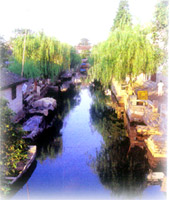
Reporters Bob Woodward, right, and Carl Bernstein used information from Felt in their reporting of Watergate, for which they won a Pulitzer Prize.
1973 AP photo
http://www.usatoday.com/news/washington/2005-05-31-deep-throat-inside_x.htm
Posted 5/31/2005 11:38 PM Updated 6/1/2005 7:04 AM
'Deep Throat' was ultimate whistleblower to some
By Susan Page and Mark Memmott, USA TODAY
WASHINGTON — For a generation, the political scandal that ousted a president and roiled the capital had a mystery at its center: Who was "Deep Throat"?
Now the anonymous source who provided corroboration and encouragement to the reporters pursuing the Watergate story against the odds has been identified. The Washington Post confirmed late Tuesday that W. Mark Felt, then the No. 2 official at the FBI, was their source. The Post's announcement followed release of a story in the July issue of Vanity Fair magazine that reported Felt's role.
Outside their home in Santa Rosa, Calif., Felt's daughter Joan called her father "a great American patriot." Grandson Nick Jones said he was a "hero who went well above and beyond the call of duty at much risk to himself to save his country from a horrible injustice."
Some Nixon partisans disagreed.
"I don't think Deep Throat was a hero," said Leonard Garment, who was domestic policy adviser for Nixon and later became his White House counsel. "My loyalties were somewhere else. I was the president's lawyer and for all his faults and difficulties, he did many good things. I don't think someone who contributed to his destruction was a hero."
Former Nixon aide Charles Colson said Felt "didn't handle this heroically." Given his position, Felt should have gone to the FBI director and demanded action, he said. If that didn't work, "he could have resigned in protest and blown the whole thing wide open."
Colson called it "inconceivable to me that a man of his caliber would be slinking around in dark alleys at night" to meet with Post reporter Bob Woodward.
But others see Felt as the ultimate whistleblower, a man who saw wrongdoing and exposed it at risk to his own career.
"I don't know Mr. Felt's motives," said Orville Schell, dean of the journalism school at the University of California at Berkeley. "But I do know that what he revealed was of incomparable consequence to the nation. Indeed, it toppled a president."
Felt "did something truthful," Schell said. "In that act, he has to be commended."
At the time, the Nixon White House and the FBI were warring. Legendary Director J. Edgar Hoover had died just six weeks before the June 1972 break-in at Democratic Party offices in Washington's Watergate hotel-office complex. FBI long-timers, including Felt, hoped one of their own would be promoted to replace him. Felt thought it might even be him.
But Nixon named assistant attorney general L. Patrick Gray as interim director. The White House also tried to undermine and mislead the agency as it investigated the break-in.
That's one reason James Mann, an investigative reporter and author, wrote in an article in The Atlantic in 1992 that Deep Throat was probably Felt or some other ranking FBI official. Mann said Tuesday that the Watergate story couldn't be fully understood until the source's identity was known for sure.
On Tuesday, it finally was.
Over the years, Felt repeatedly denied being Deep Throat. The Post staffers who knew — Carl Bernstein and Woodward and their editor, Ben Bradlee — had promised not to identify their source until his death.
There was no lack of speculation. In 2003, students at the University of Illinois concluded after a four-year project that former White House counsel Fred Fielding was most likely Deep Throat, a conclusion Fielding denied. Bill Gaines, the professor who directed the study, said Tuesday that "we have to accept" that they were wrong "because Woodward says so, and he's the only person who really knows."
Even Felt's family didn't know his secret until 2002, when he reluctantly confided in his daughter, Joan. Later, Felt discussed it with a San Francisco lawyer, John D. O'Connor.
According to the story O'Connor wrote in Vanity Fair, Felt's family encouraged him to tell his story and reap credit, and perhaps some financial rewards, for his role. But O'Connor says Felt was ambivalent, worried whether his actions would be seen as honorable.
The ambivalence seemed to be gone Tuesday in Santa Rosa when reporters outside the Felt home heard joyful whoops. Joan Felt later told the journalists they were celebrating the Post's confirmation of Felt's identity.
Contributing: Richard Benedetto in Washington and John Ritter in Santa Rosa, Calif.
Free Mind’s comments:
I was in Hong Kong. It was a very hot summer night. From the TV news, my grandfather and I found out about the resignation of Nixon.
My grandfather was a very high-integrity Chinese Nationalist.
My grandfather’s comment was that:
“Shame. It is a real shame. Nixon loses face because this scandal happened.”

 Princess Consort Treasure Pearl Zhen 1875-1900
As his most beloved, she always supported Emperor Guang Xu.
In 1900 troops from eight allied countries attacked Peking. Emperor Guang Xu intended to stay to calm the people but Dowager empress Ci Xi coerced him to go to Xian. He always wanted to reform, and never could fulfill his dream. He died suddenly on November 4th, 1908, possibly bybeing poisoned by the dowager.
Princess Consort Treasure Pearl Zhen 1875-1900
As his most beloved, she always supported Emperor Guang Xu.
In 1900 troops from eight allied countries attacked Peking. Emperor Guang Xu intended to stay to calm the people but Dowager empress Ci Xi coerced him to go to Xian. He always wanted to reform, and never could fulfill his dream. He died suddenly on November 4th, 1908, possibly bybeing poisoned by the dowager.





















